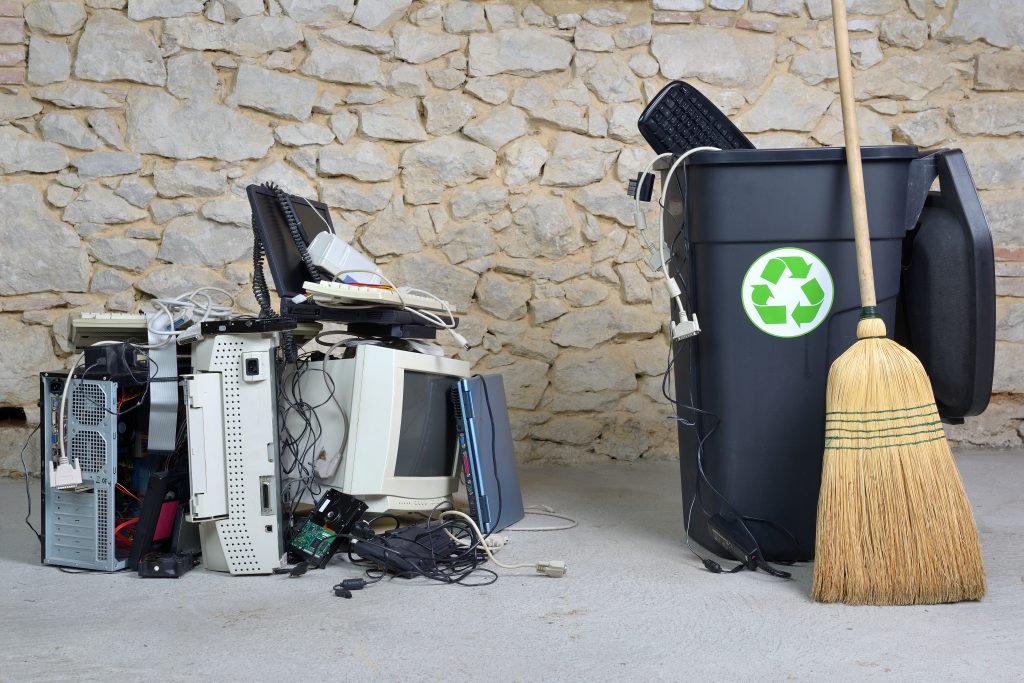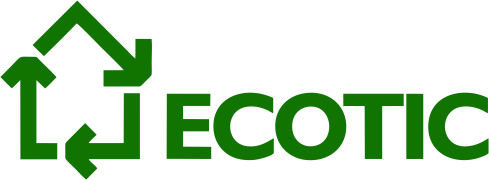Extended producer responsibility does not mean that they are solely responsible

The OECD defines Extended Producer Responsibility (REP) as a policy approach in which producers are given significant financial and / or physical responsibility - for the treatment or disposal of post-consumer products. Assigning this responsibility could, in principle, provide incentives for waste prevention at source, promote eco-design and support the achievement of public recycling and materials management objectives.
Law 201/2011 states: the extended producer responsibility scheme is a set of measures taken by the state to ensure that producers of products bear financial or financial and organizational responsibility for the management of the waste stage in the life cycle of a product.
In the field of waste electrical and electronic equipment (WEEE), several European countries have adopted a policy of liability exclusively of manufacturers. This means that the WEEE collection target assigned to the state is "delegated" exclusively to producers. Romania is a leader in this regard. The set of punitive measures attributed to producers and implicitly to those to whom these responsibilities are partially delegated - the organizations implementing the extended liability of producers (OIREP or popular OTR - Organization of responsibility transfer) - are the most drastic in Europe: 4 lei / kg contribution at AFM for unreached WEEE target (and 20 lei / kg for lamps). Also, if an OTR has failed to meet the targets, its license shall be suspended for two consecutive years. It should be noted that "OTR" is a name closer to reality, as these organizations take over partial responsibilities of producers. Aspects such as: eco-design, labeling and consumer information at the time of sale remain the responsibility of manufacturers.
The effect of this legislative context will be devastating in the near future when national collection targets rise from 45% compared to the average EEE placed on the market three years earlier, to 65% in 2021, and everything falls on the shoulders of producers and OTRs.
In 2019 and probably in 2020, we approached significantly the target of 45%, the trend being constantly increasing. 65% is an impossible leap to achieve through the levers available to producers and OTRs, and the rest of the actors that are on the WEEE flow have insignificant responsibilities.
We are aware that in Romania we need penalties to combat circumvention and disinterest in these responsibilities, but the penalty system must be adjusted to the new realities.
The European Commission clearly states in its documents the avoidance of the "sole responsibility" policy.
The document “Frequently Asked Questions on Directive 2012/19 / EU on Waste Electrical and Electronic Equipment (WEEE)” of April 2014 states:
"7.6 Are Member States required to obtain information on WEEE collected by all means?
Yes. In accordance with Article 16 (4), Member States must collect information on WEEE collected by all means. This means that Member States should take steps to involve all actors in the collection of WEEE and to receive information on the quantities and categories of WEEE collected in all ways.
There are significant flows of WEEE outside the producer responsibility schemes set up and operated by producers and it is important that all WEEE collected separately in different ways be quantified in the collection rate. These so-called 'complementary WEEE streams' are collected by a range of actors, from door-to-door collectors to large scrap iron traders."
At European level, the "all actors" approach can be defined as a system in which all entities, both private and public authorities that have access to WEEE and are therefore involved in collection, logistics, preparation for reuse, repair, treatment or WEEE recycling or those associated with monitoring, legislative and enforcement activities are subject to a minimum set of legal obligations, such as: compliance with legislation, reporting to competent authorities, alignment with official standards and communication. All actors must work together in good faith and act for a common goal: to carry out WEEE operations responsibly.
I would like to recall one thing that has been given too little importance: the aim of the European WEEE Directive 2012/19 / EU is' Protecting the environment and human health by preventing or reducing the negative effects of WEEE generation and management and reducing the overall effects of use resources and improving the efficiency of their use ”.
Achieving a collection rate is only a means to this end, and the emphasis should be on neutralizing pollutants and recovering materials (especially those classified by the European Commission as critical raw materials).
Or, in Romania efforts are made to increase the collection rate and too little to prevent vandalism and improper treatment.
The burning of cables, the shredder of unpolluted WEEE, the release of refrigerant into the atmosphere, the crushing of WEEE with a grapple and other improper practices are carried out (and encouraged) including by operators with ambiguous environmental permits. A comparison of the quantities of refrigerant that should have been neutralized, corresponding to the quantities of WEEE with this compound and officially treated by more than 70 authorized operators and the quantities actually neutralized by the 3-4 incinerators in the country would be eloquent. The same is true for WEEE electrolytic capacitors.
The efforts mentioned above refer to the activities of several OTRs that actually act on behalf of producers (under the pressure of the biggest penalties in Europe) and that's about it.
At the level of local authorities, too little has been done in this area, and the collection infrastructure is too little present. Informal collection is tolerated and widespread. Even if some reach the formal system, WEEE is without cables, electronic boards and coils, and most of the polluting compounds are already in the environment.
We want to adopt Western models, and this is not a bad thing. Exclusivity does not exist in Western Europe. Each community has recyclable waste collection centers, including WEEE, citizens are informed about them, and deviations are drastically combated.
There is, in most cases, a coordination center designed to ensure an equivalent and continuous effort of producers in managing this area. We will have this tool with political will in the near future, as we are working on this in the Ministry of Environment.
But what do we do until then? 2021 is knocking at the door and there is a queue of new OTRs, set up by opportunists waiting for the licensing and collapse of the big ones.
We consider it necessary to take swift action, in which the extended responsibility of producers is controlled by producers, as well as other measures to hold all actors in the system accountable. Producers' burdens must also be limited to WEEE available for collection at local authorities, shops and collectors. If the target has not been met, then OTRs should invest unspent amounts related to the difference in national awareness campaigns and local collection infrastructure, possibly in a centralized way such as a Clearing House.
We all want a clean environment, without climatic extremes, and poor WEEE management negatively influences these factors. Important steps in this area can be taken in good faith and involvement. We want and are open to contribute.
Dragos Călugaru
ECOTIC General Manager
